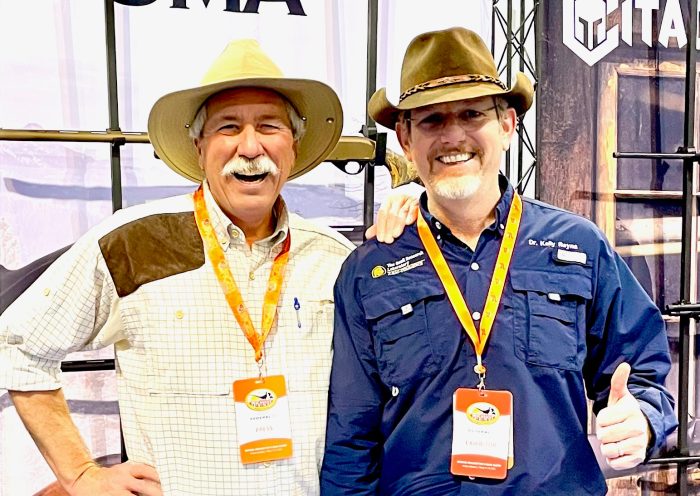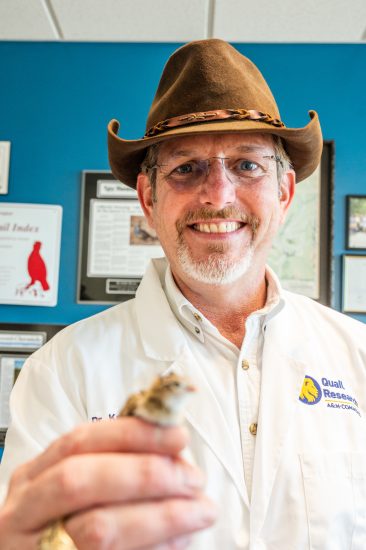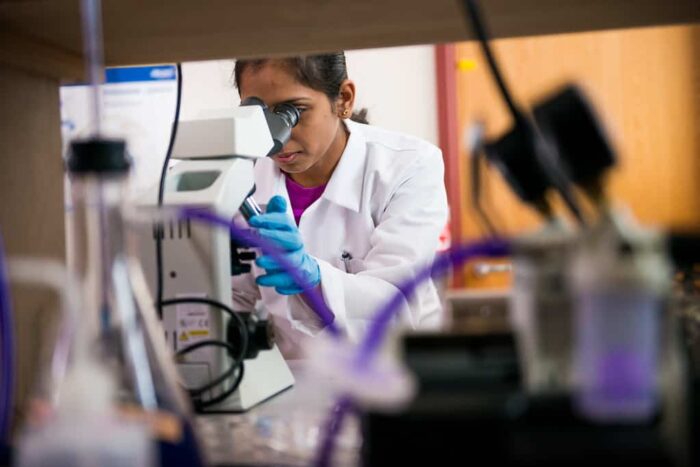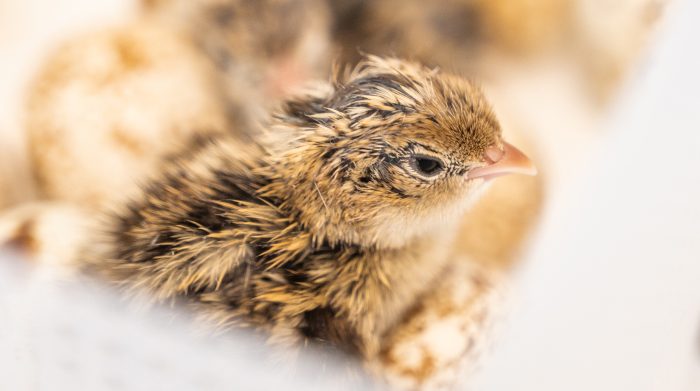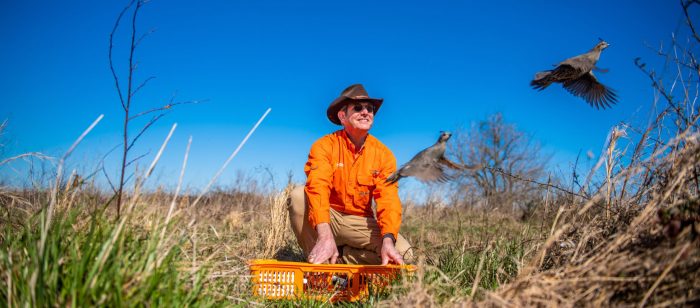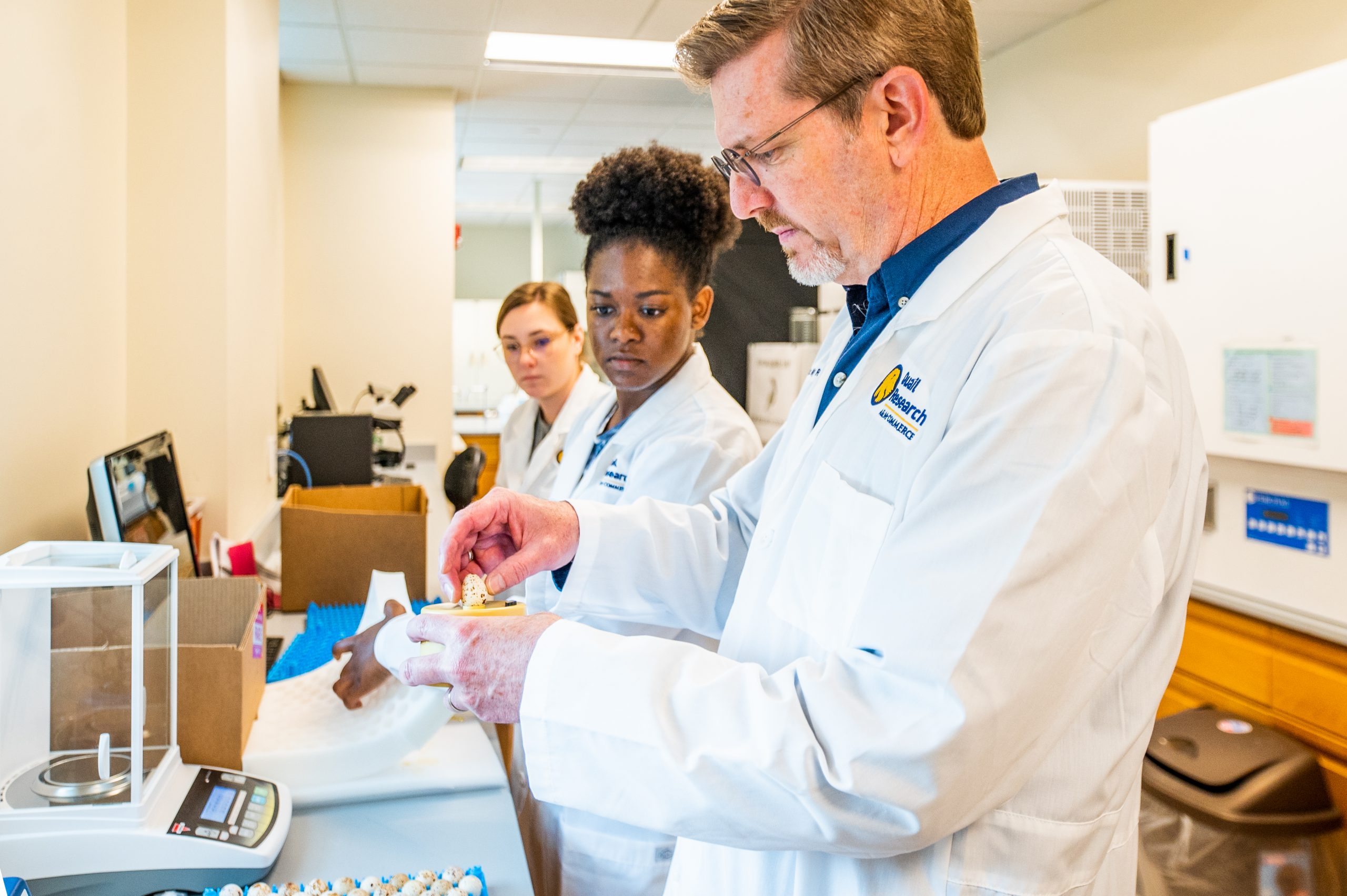
- On this page:
-
 Programs
Programs
-
 Research
Research
-
 Contact Us
Contact Us
Department of Biological and Environmental Science
From Lab to Life
Explore your passion for biology and the environment at A&M-Commerce. Our Department of Biological and Environmental Science offers undergraduate and graduate programs in biology, environmental science, wildlife conservation science and teacher certification. We also offer a fully online Master of Science degree in biological sciences.

Welcome from the Department Head
Welcome to the Department of Biological and Environmental Sciences at Texas A&M University-Commerce. The department offers a dynamic learning environment, exciting cutting-edge research opportunities and strong mentorship by world-class scientists. Our undergraduate and graduate programs in cell and molecular biology, conservation biology, ecology, environmental science and biology education are all designed to train and educate students to meet the challenges of modern sciences. We invite you to explore our exceptional education and research opportunities.
Explore Our Programs
Biological Sciences (BA/BS)
The BA or BS degree provides a comprehensive overview of biological sciences, working from the molecular level up through ecosystems. The programs are suited for you if you are interested in the biological sciences, a career in biological research or applying for candidacy in medicine, dentistry, physical therapy or other allied health sciences fields.
Biological Sciences (BS) Teaching Emphasis
There is a growing need for science teachers in high school. A degree in biology along with a teacher certification will allow you to combine your interest and passion for biology with influencing and shaping the lives of the next generation.
Biological Sciences (MS)
If you are interested in furthering your studies in biological sciences, this program will enable you to work closely with faculty members with similar research interests. Faculty research interests within the department include behavioral ecology, environmental science, microbiology, neuroscience, molecular, cellular and developmental biology, as well as wildlife ecology and conservation.
Environmental Science (BS)
If you are interested in the growing field of environmental science, this degree is for you. As a graduate you will be able to work for private environmental companies, corporations or federal, state, county or civic governments in positions that will impact air quality, water quality, hazard mitigation and other environmental challenges. Career fields include, but are not limited to, pollution remediation, environmental impact assessment, regulation enforcement and research.
Wildlife and Conservation Science (BS) Biology Track
This program is designed for students interested in wildlife management, ecology or the preservation of biodiversity. Through hands-on research at our university wetland, practical exercises, field trips, internships and personal instruction in the classroom, you will gain marketable expertise in soils, ecology, botany and zoology. Upon completion of this program you can pursue careers as wildlife ecologists, game managers, state and federal wildlife biologists, state and federal park rangers, nature preserve and interpretive specialists, and zoo-keepers. This program is offered as a collaboration between the Department of Biological and Environmental Science and the College of Agricultural Sciences and Natural Resources.
Student Support
BioPride
BioPride is a one-week program that introduces biology coursework to freshman students before the first week of classes. This program helps you transition from the high school classroom to the university setting. You’ll gain insight into the discipline by attending lectures and learning laboratory techniques.
JAMP
Joint Admission Medical Program (JAMP) is a special program created by the Texas Legislature to support and encourage highly qualified, economically disadvantaged Texas resident students pursuing a medical education. It is funded through the Texas Higher Education Coordinating Board.
SCHOLARSHIPS
As a biological and environmental studies student, you have access to a wide range of scholarships specific to your degree.
Our Research
Our biological and environmental science faculty are excited to develop your knowledge and skills through research. Opportunities are available for both undergraduate and graduate students. We encourage you to discuss any research interests with your professors.
Human Dimensions Of Quail Sustainability
With declining populations of quail where there once was a thriving population, it is important to step back and consider how humans contribute to this change.
Quail Chick Development
To determine if quail embryos and eggs are affected by environmental change, normal stages of development for each species must first be described to compare to experimental results. Scientists from The Quail Research Laboratory recently charted the normal stages of development for the California valley quail and continue to chart other quail species. Learn More
Quail Research Station Program
What is the definition of a sustainable quail population? Current quail research is rich in data which has identified many potential components of state and national declines in quail populations. Yet, consistently predicting quail population behavior and sustainability remains as elusive as ever. Learn More
Unmanned Air Systems – Assisted Wildfire Fighting in Wildland Urban Interface Zones
A collaborative research effort between multiple universities is ongoing with a goal to improve the safety and effectiveness of firefighters in wildland-urban interface (WUI) zone fires. The reduction of the preventable fire burden occurs by decreasing the number of buildings that are ignited by exposure to wildland fire, detecting and suppressing spot fires, and helping to cool down the fire head and flanks. The system is based on the utilization of a swarm of Unmanned Air Systems (UASs) with on-board sensors to assist firefighters by reducing the need for firefighter deployment across dangerous terrain in unknown fire conditions. The specialized UASs are manufactured at A&M-Commerce with payload capacities over 20 kg.
Freshwater Turtles' Spatial Use of Managed and Unmanaged Wetlands in Northeast Texas
Herpetological Communities within Constructed Wetland Complexes
Arming the Immune System to Fight Breast Cancer
Our Facilities

Health Science Center
Our new health science building will feature the Biomedical Institute for Regenerative Research center. You’ll benefit from the latest laboratory equipment as you research ways to cure and reverse damages from disease. After graduating, you’ll be well on your way to a successful career in the healthcare industry.
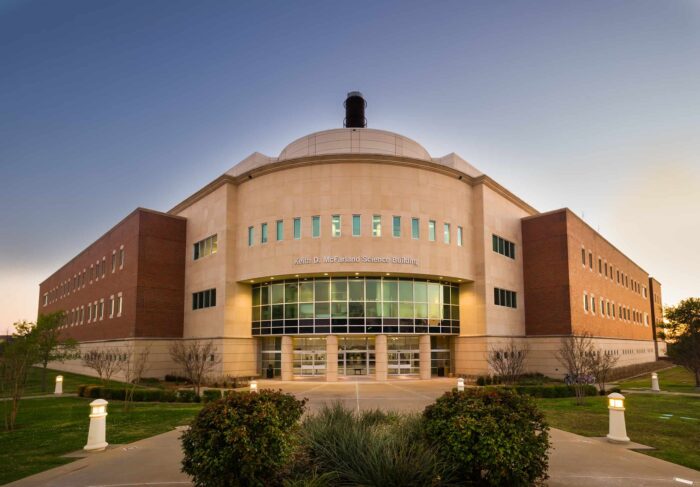
Keith D. McFarland Science Building
Opened in 2003, our Keith D. McFarland Science Building offers a state-of-the-art research facility and learning center. The building features an 87-seat planetarium and 29 fully-equipped laboratories.
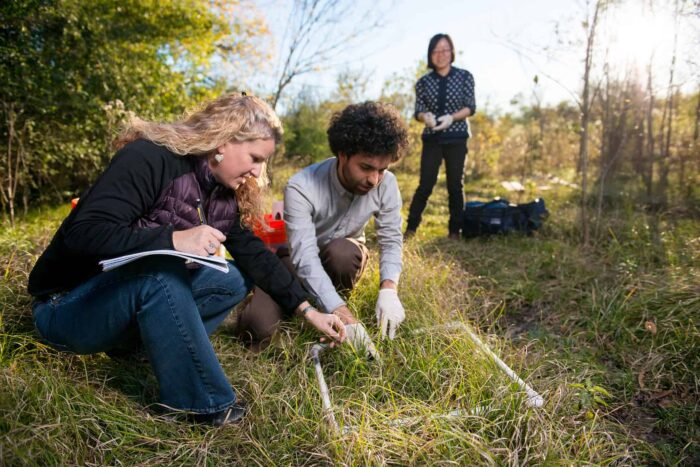
University Wetlands
Our environmental science program takes your knowledge outdoors. Forty-six acres of wetlands/prairie restoration are located at the interface of two of the most endangered ecosystems in North America, the Texas Blackland Prairie and The Texas Post Oak Savanna. You’ll help restore, maintain and protect the wetlands of Northeast Texas.
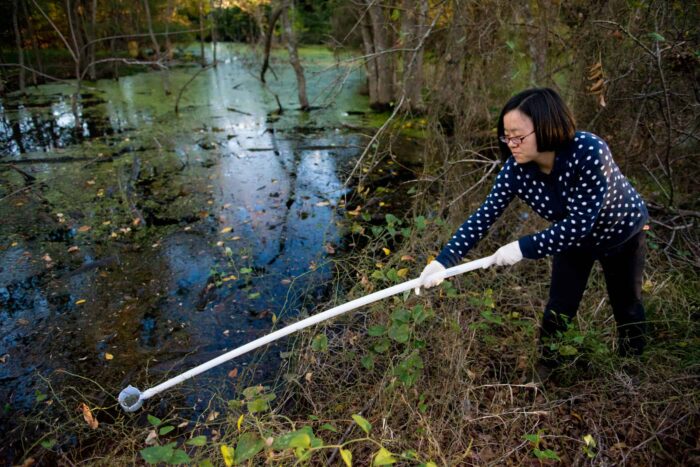
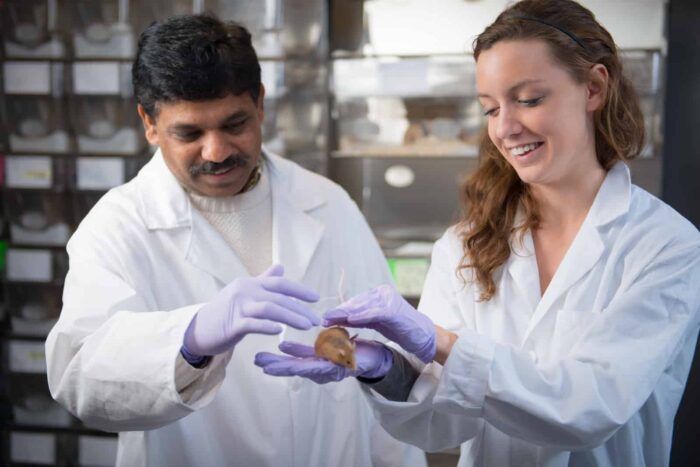
Animal Care Facility
Our Animal Care Facility is designed to house different model vertebrate animals including mice, rats, fish and birds. A faculty supervisor and student workers oversee its operations. The ACF is monitored by the Institutional Animal Care and Use Committee (IACUC) and the Chief Compliance Officer for the Texas A&M University System.
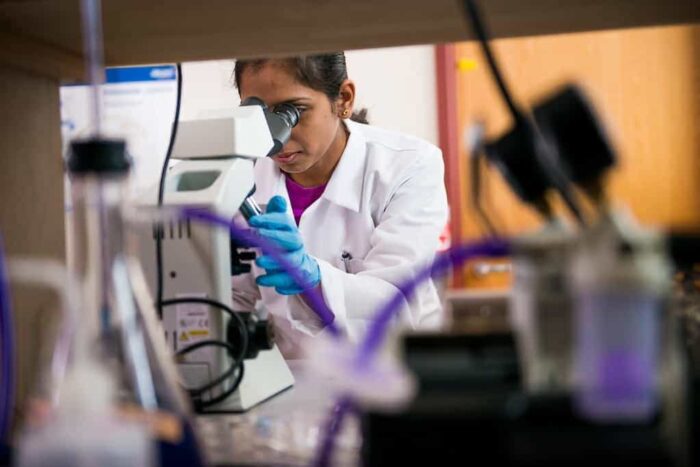
Student Organizations
Beta Beta Beta
Our Delta Gamma chapter participates in a variety of social functions and charity work pertaining to biological and health sciences. This organization is for students who major in biological sciences, have a GPA of 3.0 or higher and have completed a minimum of three courses in biology (associate members are those who have not taken three biology courses but fulfill the other two membership requirements).

Meet our Department
News Spotlights
Contact Us
- Department of Biological and Environmental Sciences
- 903.886.5378
- P.O. Box 3011
- Commerce, TX 75429-3011






















